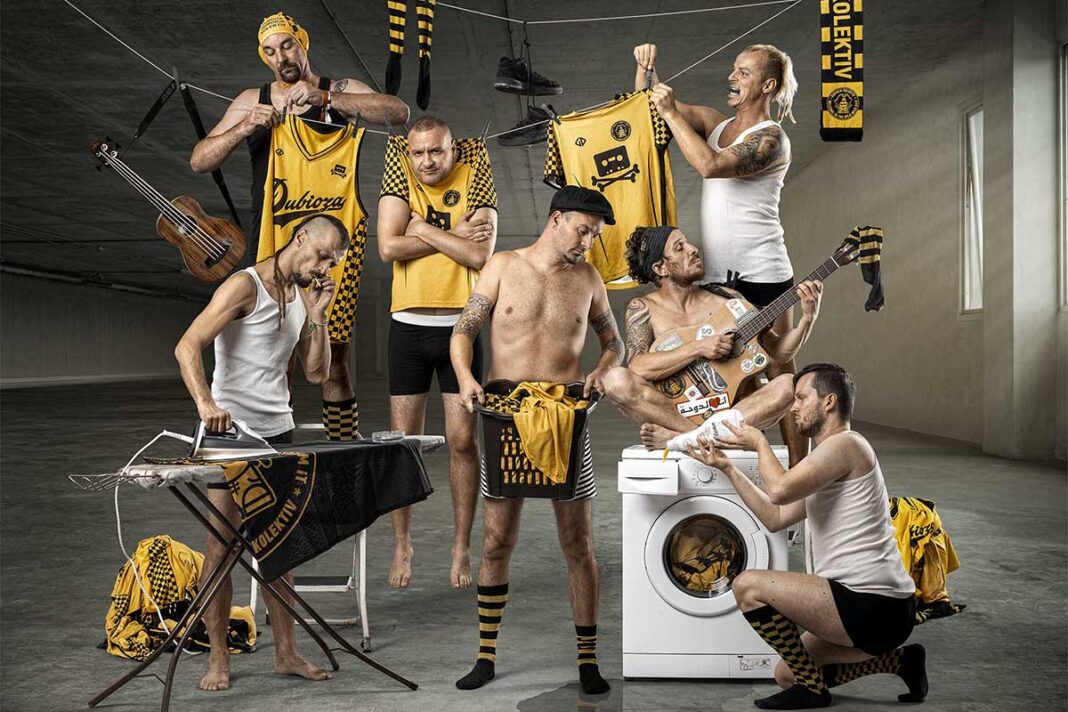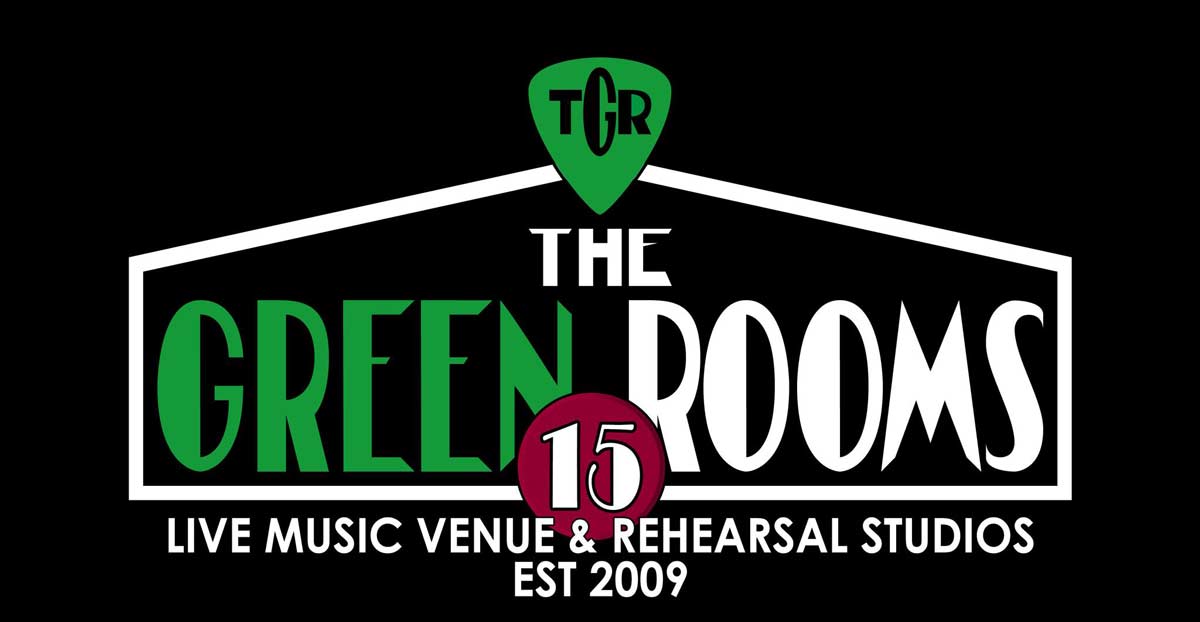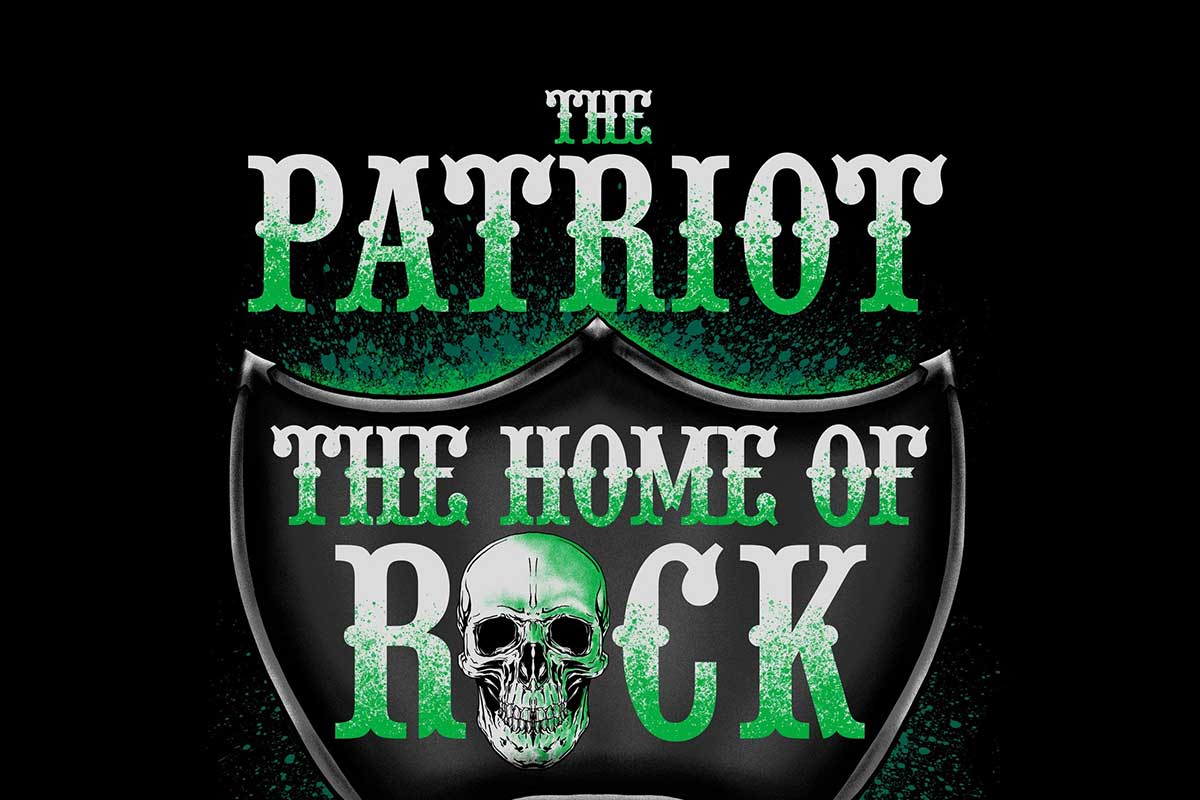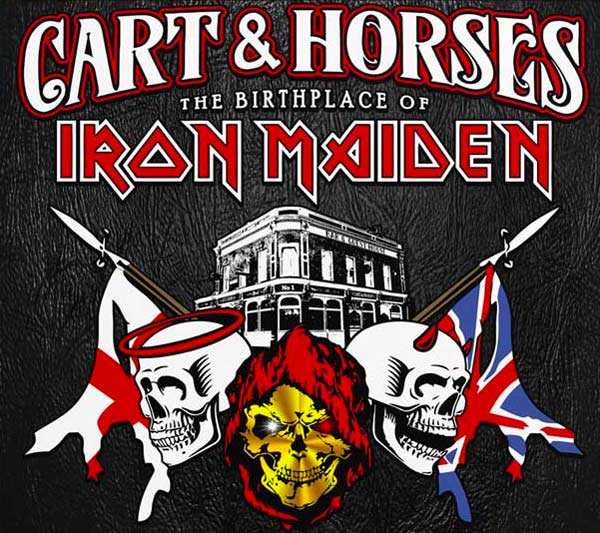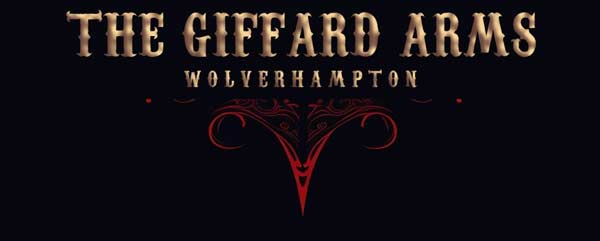The very eclectic Bosnian rockers Dubioza Kolektiv hit the UK and Ireland for a tour starting next week, and MetalTalk’s Chris Dale took the chance to catch up with bassist Vedran Mujagic so he could shed some light on what we are to expect from them.
I try describing Dubioza Kolektiv to people and find myself unable to define these guys, except to just recommend people check their live show out to get the full experience.
Dubioza Kolektiv suggests that the band have never tried to define their style or fit it into a specific genre compartment. “I guess we’re chronically allergic to borders,” he says, “so we enjoy crossing musical boundaries as well. For us, the stories and ideas always come first, and the music is built around the lyrics, not the other way around.
“We’ve kept a Balkan touch to our sound so it’s always clear where we come from. This puts everything we tell into a specific geographical and historical context so one can understand our lyrics and messages more accurately.”
The members of Dubioza Kolektiv grew up during the Bosnian War in the ’90s. “Music was a way to escape the reality of life under siege,” Dubioza says. “A natural reaction to all the aggression and violence around us was, of course, playing some heavy and extreme music, so our first bands were obviously Death Metal.
“We also listened to tons of alternative and Metal music from that period, from the Thrash Metal Big Four to heavier sounds like Sepultura, Deicide, Napalm Death. The ’90s were exciting times with great new music coming out in huge quantities, so we listened to everything we could get our hands on.
“VHS tapes, recorded by whoever was lucky enough to have electricity at the right moment to catch MTV’s 120 Minutes, Alternative Nation or Headbangers Ball, would circulate around town like precious contraband.
“My first real rock concert was noise band SCH from Sarajevo, and looking back, it all feels quite surreal. It was in the middle of the War, during a brief ceasefire. I was 15. I walked across half the city to see them at Obala Club, then had to run home before the police curfew.
“It’s hard to describe the energy on the music scene during the War. There were more active bands than ever before (or after), even though there was no electricity in the city most of the time.
“People had the urge to play and create. I think that shaped us into what we are now, doing something you love against all odds and in impossible circumstances. This entire experience is probably a reason why DIY is the only way we know how to work.
“We learned very early how to get the maximum from the little resources you have available.”
Dubioza Kolektiv have been going since 2003, steadily building up a massive underground following around the world. Having played in other bands after the war, when they got together, they already had some experience.
“I can’t lie and say we had some genius master plan,” Vedran Mujagic says. “We just stubbornly kept going and took advantage of every opportunity that came our way. Since Bosnia was far away from any kind of music industry, we explored alternative routes and embraced all the new platforms that were emerging in those early days of the internet, from early social networks like MySpace to torrent platforms, Pirate Bay, and so on.
“From the very beginning, we played as many live shows as possible. Two decades and well over 1,000 shows later, the only thing we’re 100% sure of is that we don’t know the secret to overnight success in the music industry.”
Vedran says the biggest highlight of the band’s career so far is that they have survived this long, doing what they love and living a life they dreamed of as kids. “If someone had told me back then that we would one day play Glastonbury Festival, that Bill Gould from Faith No More would release our record, that we would have Manu Chao or Earl Sixteen as guest artists on our songs, I would’ve thought they were crazy. Yet here we are.”
Dubioza Kolektiv have a relatively unique stance in the music industry, as all their albums are free to download and yet they still seem to achieve very good record sales.
“This was the only logical thing for us to do at the time,” Vedran says. “When we did it for the first time, the music industry was in the middle of its transition from physical to digital media and desperately trying to keep the old money streams alive. Those were the days of heavy campaigning against music piracy to prevent sharing on P2P platforms (remember the saga of Metallica v. Napster?).
“What was a nightmare for the industry, sharing music for free to a huge number of people in real time. It was a dream come true for us, because all we wanted was an opportunity to be heard. As soon as it became technically possible, we started putting albums up as free downloads, and when the numbers went through the roof [Their album Apsurdistan was downloaded 300,000 times in just a few weeks], record labels started to notice us too. But even when we got signed, we made it a condition that free downloads would continue.”

I have seen Dubioza Kolektiv a few times now, and it is always such an amazing vibe in the audience. I was there when they totally won over a crowd at Boomtown Festival, none of whom knew the lyrics to their songs. So they were not a fan base, but all of them were up and dancing by the end of the gig.
“The reaction of the people is usually proportional to the amount of energy you put into the show,” Vedran says. “If you calculate and play it cool, you’ll probably get an equally cold response. But people quickly recognise when you’re giving it everything you’ve got, and that’s when the party can start.
“Festivals like Boomtown are always interesting and challenging. You have a very short time to grab people’s attention and keep them in front of the stage. If you don’t succeed fast enough, you might end up playing to an empty field because everybody left for the next stage in search of something more interesting.
“At our shows, you can expect everything. From reggae, ska, or punk to heavy riffs, from Balkan brass music to politically incorrect jokes. From mosh pits and headbanging to Bosnian tango dance lessons. The best way to find out is to see and hear it for yourself.”
I would have to agree with Vedran, especially on that last point. If all this sounds curious to you, come and check out one of the best live acts on the scene at one or more of their upcoming dates.
For more Dubioza Kolektiv information, tour dates and downloads, visit dubioza.org.

